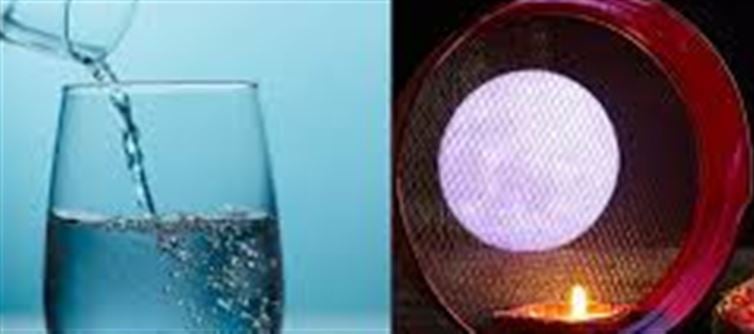
It .jpg) is a beautiful tradition where married women fast for the health and longevity of their husbands. Staying hydrated and energized during this long fast is crucial to maintain strength and wellbeing. Here are 7 smart hydration hacks every woman should know to stay refreshed and active, whether fasting on Karwa Chauth or in daily life.
is a beautiful tradition where married women fast for the health and longevity of their husbands. Staying hydrated and energized during this long fast is crucial to maintain strength and wellbeing. Here are 7 smart hydration hacks every woman should know to stay refreshed and active, whether fasting on Karwa Chauth or in daily life.
1. Start Hydrating Early
· Begin drinking plenty of water before sunrise (Sargi time) to prepare your body for the fast
· Aim for at least 2-3 glasses to keep you hydrated throughout the day
2. Include Electrolyte-Rich Drinks
· Add natural electrolyte drinks like coconut water or buttermilk to your pre-dawn meal
· These help maintain mineral balance and prevent dehydration during the long fast
3. Eat Water-Rich Fruits
· Snack on fruits like watermelon, cucumber, oranges, and grapes during your pre-fast meal
· These fruits hydrate your body naturally and provide essential vitamins
4. Avoid Salty and Spicy Foods
· Cut back on salty and spicy dishes before your fast as they increase thirst and fluid loss
· Opt for balanced meals with moderate salt to avoid dehydration
5. Sip Warm Lemon Water Post-Fast
· After breaking your fast at sunset, start with warm lemon water to gently rehydrate
· Lemon boosts digestion and helps your body absorb fluids quickly
6. Take Small Sips Instead of Gulping
· When you drink water, take small, frequent sips instead of large gulps
· This allows your body to absorb fluids better and prevents feeling bloated
7. Use Hydrating Face Mists and Oils
· While not a drink, hydrating face mists and light oils help keep your skin moisturized during fasting hours
· Feeling fresh on the outside helps boost your energy and mood
🌟 Final Thought: Stay Hydrated, Stay Strong
Karwa Chauth fasting is a beautiful ritual, but smart hydration can make all the difference in how energized and comfortable you feel. These simple hacks can help you observe the fast with strength and grace—because caring for yourself is just as important.
Disclaimer:
The views and opinions expressed in this article are those of the author and do not necessarily reflect the official policy or position of any agency, organization, employer, or company. All information provided is for general informational purposes only. While every effort has been made to ensure accuracy, we make no representations or warranties of any kind, express or implied, about the completeness, reliability, or suitability of the information contained herein. Readers are advised to verify facts and seek professional advice where necessary. Any reliance placed on such information is strictly at the reader’s own risk.




 click and follow Indiaherald WhatsApp channel
click and follow Indiaherald WhatsApp channel